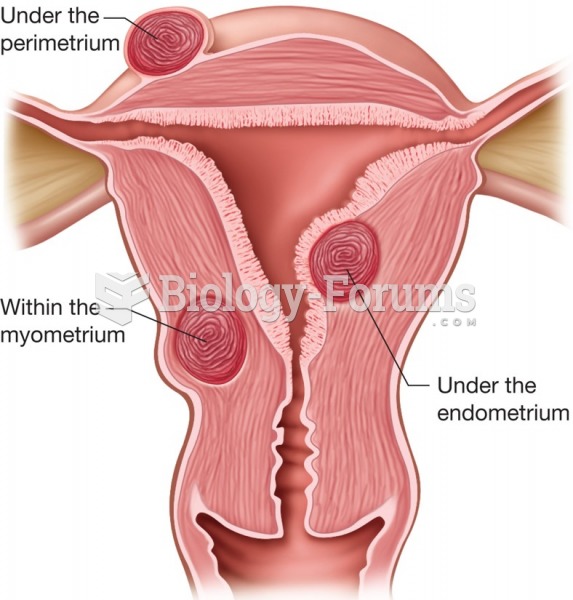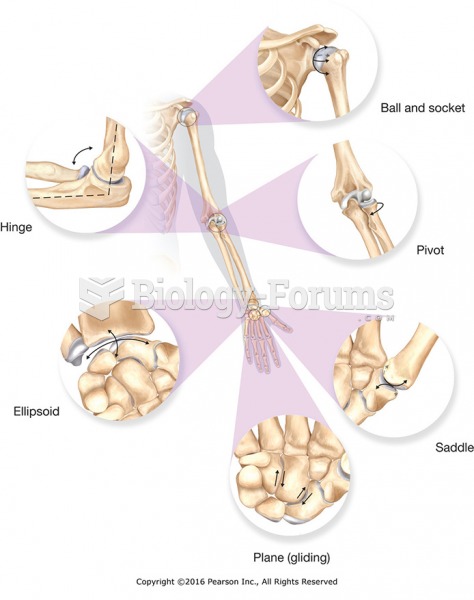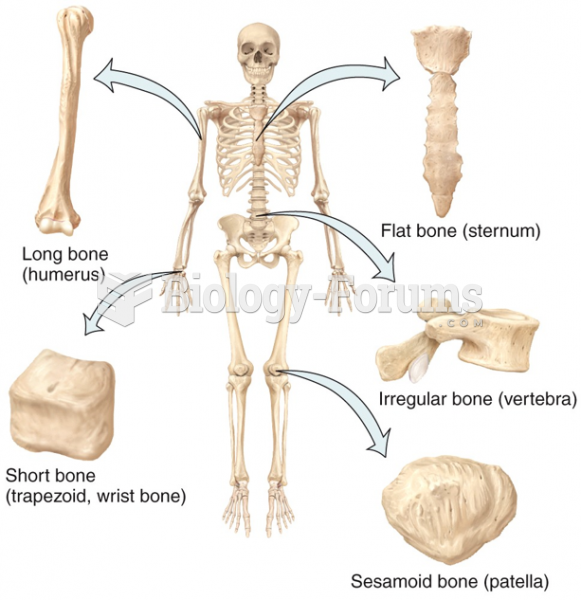|
|
|
To prove that stomach ulcers were caused by bacteria and not by stress, a researcher consumed an entire laboratory beaker full of bacterial culture. After this, he did indeed develop stomach ulcers, and won the Nobel Prize for his discovery.
A seasonal flu vaccine is the best way to reduce the chances you will get seasonal influenza and spread it to others.
Human stomach acid is strong enough to dissolve small pieces of metal such as razor blades or staples.
The familiar sounds of your heart are made by the heart's valves as they open and close.
In Eastern Europe and Russia, interferon is administered intranasally in varied doses for the common cold and influenza. It is claimed that this treatment can lower the risk of infection by as much as 60–70%.







